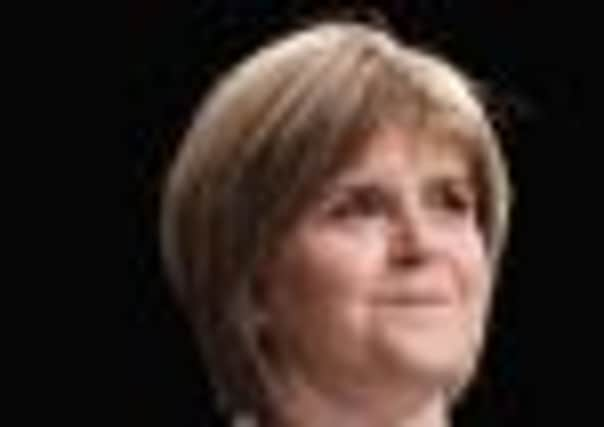SNP’s minimum pricing plans of 50p ‘hands big stores £155m’


Iain McMillan’s intervention came as health secretary Nicola Sturgeon is today expected to confirm that the SNP government will set the price per unit of alcohol at 50p.
Opponents have previously claimed that the SNP’s failed attempt to introduce a 45p per unit price two years ago would lead to a £140 million annual windfall for supermarkets.
Advertisement
Hide AdAdvertisement
Hide AdMr McMillan told The Scotsman yesterday the 50p level will see that figure increase by 11 per cent. increase in the prices Scots are forced to pay for alcohol at supermarkets.


His claims were echoed by And Gavin Partington, interim chief executive of the Wine and Spirit Trade Association (WSTA), warned that the increased minimum price level would have a “very significant impact” on shopping bills north of the Border.
Ms Sturgeon is set to announce the 50p level in Glasgow today, after receiving a fresh report from Sheffield University calculating the impact of the plans.
The university said that the 45p level, the figure proposed in an earlier study, would have less impact that previously thought. The study said it would cut alcohol consumption by 3.5 per cent, compared with an estimate of 4.3 per cent two years ago.
The SNP government has already introduced a “public health levy”, which will see supermarkets and other large vendors of alcohol and tobacco pay a supplement through their business rates.
However, Mr McMillan said the increase from 45p to 50p was above the rate of inflation, as he claimed the rise in the minimum price came on top of an increase in alcohol duty in the UK government’s budget.
He said: “This increase from 45p pence to 50p is more than double the rate of the Retail Price Index of 5.2 per cent from last September, which was then at its highest level.
“That’s an increase of 11.1 per cent, which is double last September’s RPI figure of 5.2 per cent. This will inevitably put more money into the pockets of the supermarkets.
Advertisement
Hide AdAdvertisement
Hide Ad“The Scottish Government has also gone much further than the UK government’s recently imposed increase in duty on alcohol.”
The Scottish Government’s minimum pricing bill is set to pass its final hurdle at the Scottish Parliament on 24 May, with SNP, Conservative and Lib Dem MSPs voting for the measures.
But the government is likely to face a legal challenge from low-cost wine and spirit producers in eastern European countries, who say the move breaks EU competition rules.
A leaked letter from the UK’s Department for Business, Innovation and Skills also claims that minimum unit pricing “is very likely to be deemed illegal under EU competition and trade law”.
The Scottish Government insists the policy is legal and that the move will only affect cheap drinks associated with alcohol abuse. A government spokeswoman said: “Alcohol consumption costs Scotland’s economy £3.6 billion each year, £900 for every adult in the country.
“We need to stem the flow of cheap, high-strength drink, and minimum pricing is one part of our comprehensive alcohol misuse strategy.
“Minimum pricing has attracted the support of the Conservatives, Lib Dems and the majority of the health and sport committee, joining an ever increasing group of medical professionals and significant parts of the drinks and licensed trade industry that recognise the benefits minimum pricing can bring – saving lives and reducing crime.”
However, Mr McMillan warned the increase to 50p could lead to further sharp rises.
Advertisement
Hide AdAdvertisement
Hide AdHe said: “Minimum pricing will have the effect of pushing up the prices of cheaper brand alcoholic drinks and will put these brands at a considerable disadvantage.
“The higher the minimum price, the greater the effect on the cheaper brands. “There will also be a temptation on the part of the government to increase the minimum price, particularly if they see it isn’t working.”
Gavin Hewitt, chief executive of the Scotch Whisky Association, said: “Minimum unit pricing will be ineffective in tackling alcohol misuse.
“It has consistently been ruled to be illegal in Europe. It will damage the industry.”
Scottish Lib Dem leader Willie Rennie said the 50p minimum would have a greater impact on alcohol abuse as he repeated his party’s support for the policy, which the SNP hopes to have in place by spring 2013.
A Scottish Labour spokesman said: “The higher the price is set, it stands to reason that the amount of money going to the supermarkets will increase.”